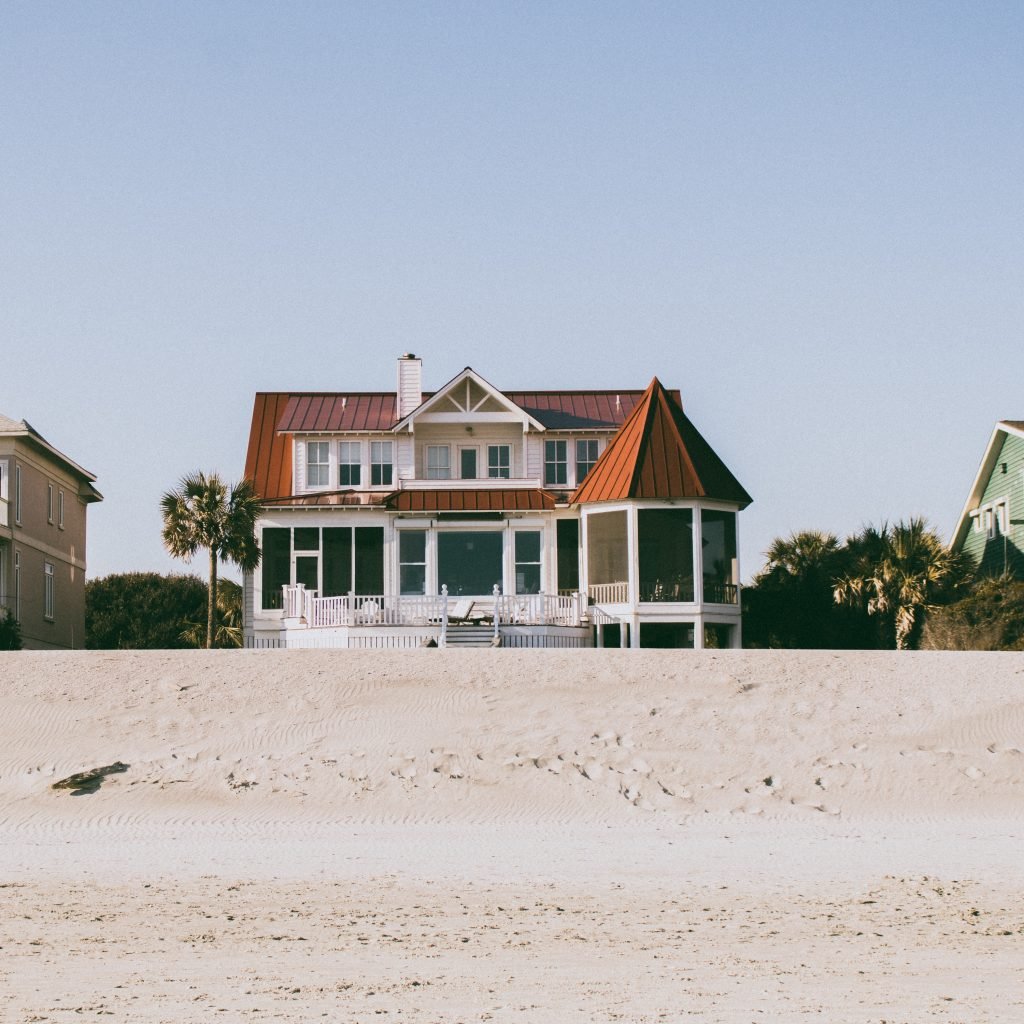The sound of crashing waves, the pungent smell of seaweed and sand, those early morning walks when nobody else is around… beach life sure is alluring, and we’d all be lying if we said we hadn’t dreamt about a home on the coast.
What’s more, there are health benefits to living near the water. Research has in fact proven what we all know: we feel less stress and an overall improvement in wellbeing when we’re near the ocean.
There are, however, some factors you need to consider before making the move. Living immersed in salty air may do great things for your skin, but not so for your car or your home. Here’s where to start, and a few tips on how to mitigate the impact of salt water before buying a home next to the sea.

Effects on your home
You probably remember from science class what salt water does to metal: it corrodes and rusts just about everything. So salt water’s effect on houses should come as no surprise. The biggest thing you’ll need to pay attention to? Your HVAC system. Since it pulls air in through ducts and filters to heat or cool, you’ll quickly see a buildup of salt and, unless you have it cleaned regularly, corrosion on everything made of metal.
To make sure your home can withstand the salty summer breeze:
- Have your HVAC system serviced regularly by the professionals. A local company will make sure your system is pulling air from a properly ventilated place (i.e., not the side of your house closest to the water) and any metal components that start collecting salt get cleaned.
- Though it may be tempting to keep your grill and other outdoor furniture on your deck all summer long, consider bringing it into your garage or basement when not in use – and make sure to hose everything down regularly with fresh water.
- If you have a home office, keep your windows closed on particularly foggy, humid days and use a dehumidifier to keep your electronics from being exposed to salty humidity.
- Invest in a power washer and use it regularly. Keeping your windows, doors, and siding clean of salt as much as possible will reduce wear and tear significantly.
Effects on your car
The biggest impact you’ll see on your car will probably be the deterioration of the paint. Humidity makes the car’s paint more susceptible to the corrosive influence of salt, and once you begin to see paint corrosion, it’s a downward spiral. Keep this at bay by washing and waxing your car regularly and, if possible, park it in a garage or at least out of the sun.
What you won’t see is the impact of the salty, humid air on the nuts, bolts, and even brake calipers. Over time these metal parts can begin to corrode and rust, so you’ll need to commit to washing your car regularly and getting these important parts maintenanced to be sure they’re in good, working order.

Effects on your garden
The long and short of it: if you live near the beach, choose primarily plants that are meant to grow by the ocean. Many non-native blooming plants are quite sensitive to salty air and won’t do well on the coast. Sadly, this includes many items you might want to plant in your vegetable garden. Consult your local gardening store or greenhouse for ideas about what you can do to mitigate the damages of salt water to your plants.
Buying a beachfront property may be the most wonderful thing you’ve ever done! Just keep an eye on these things to prevent saltwater damage to your home, and you’ll be living the life of your dreams on the coast.
Speaking of the coast: considering moving to Florida? Here are some of the pros and cons to consider!








